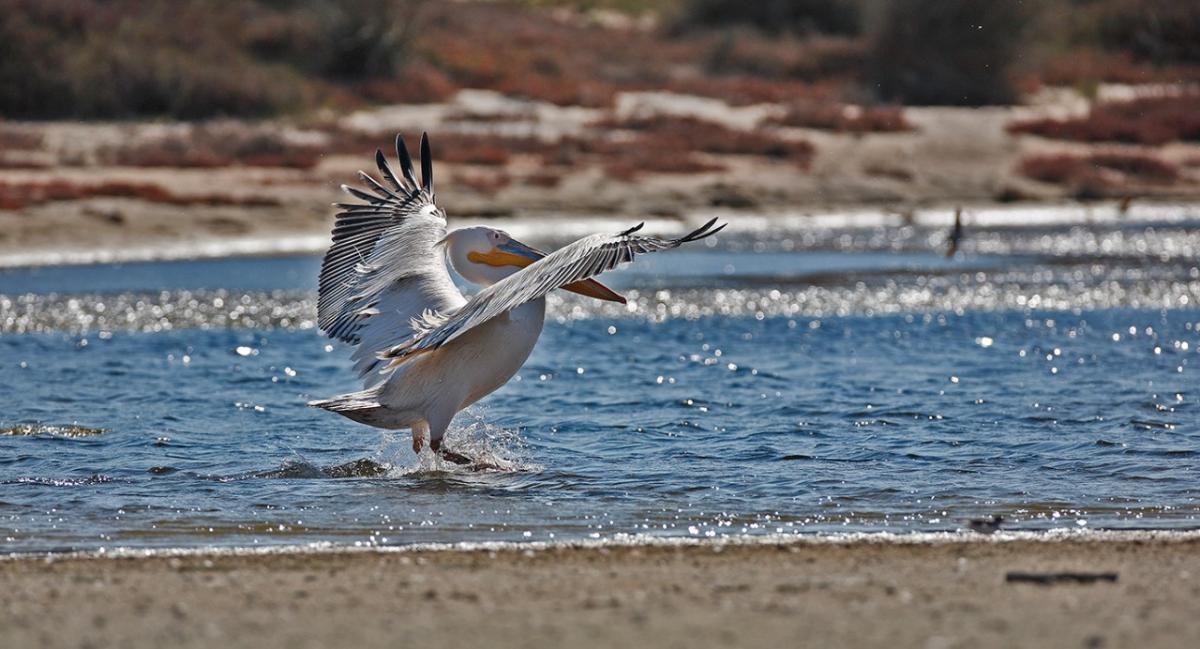Environmental Research From De Beers' Sites Goes on Show at Major Conference
One of the world’s leading environmental historians will headline at a high-profile research conference opening at De Beers Group’s South African headquarters in Johannesburg today.

Environmental research from De Beers' sites goes on show at major conference
Professor Emeritus Jane Carruthers will kick off the 8th Oppenheimer De Beers Group Research Conference in front of more than 200 conservationists, scientists, academics, students, nature lovers and activists.
Her keynote address will give an overview of research over the last century, looking at what has shaped the knowledge of the present research and conservation arena.
Tomorrow begins with Professor Norman Owen-Smith of the University of Witwatersrand presenting several case studies on how different species can be monitored continuously for extended periods.
These two leading academics are among about 40 speakers taking the stage at the conference. They will outline the latest thinking on a variety of topics, ranging from water quality, the immunocontraception of African elephants and climate change to wind farms, virtual fencing, pangolins, vultures, leopards, tree skinks, porcupine and ticks.
The aim of the two-day conference is to highlight the results of the diverse research projects undertaken on the properties owned by De Beers and E Oppenheimer & Son in South Africa, Zimbabwe, Namibia, Botswana, Canada and the United Kingdom.
Patti Wickens, Senior Environmental Manager at De Beers, said: “This annual conference is a highlight for us in allowing us to showcase the research of our partners.”
Warwick Mostert, Principal, Biodiversity, Safety & Sustainable Development for Anglo American (De Beers Group’s parent), said the conference grew in popularity every year.
“An important objective for De Beers is to ensure that we share the outcomes of the many varied research projects supported and the genuine biodiversity contributions made through investment in mining,” he said. “Improving our biodiversity knowledge and the conservation and stewardship of critical habitat and threatened endemic species remains a strategic objective for De Beers and the Anglo American Group.”
Mpumi Zikalala, Senior Vice-Present of De Beers Sightholder Sales, South Africa, will open the conference, and Nicky Oppenheimer, Chairman of E Oppenheimer & Son, will summarise highlights from the two days, present awards and close the conference.
Dr Duncan MacFadyen, Manager of Research and Conservation at E Oppenheimer & Son, said: “The conference has established itself among a very diverse group of academics and attracted an audience from the heads of corporates to students, and those just trying to make sense of the world around them.
“Hopefully, this diversity of knowledge is disseminated to an ever-widening field of people interested in our fragile planet and how we can help its sustainability through awareness of the sensitivity of the various species and their environment.”
Biodiversity conservation, research, environmental education and sustainability opportunities are at the heart of the conservation philosophy of the Oppenheimer family and De Beers, together owning sites covering about 250,000 hectares stretching across southern Africa.
Patti added: “We acknowledge that mining has an impact on biodiversity, even when mining projects and operations are carefully planned to avoid sensitive areas, minimise the mining footprint and rehabilitate areas after mining. For decades, De Beers has made significant investments in setting aside areas specifically for biodiversity conservation, supporting research projects across a range of ecosystems from the offshore areas and arid areas of southern Africa to the far north in Canada.”
Here’s a flavour of the research papers on the agenda:
Ancient human and pathogen DNA persists in South African Pleistocene archaeological sediments
It is known that our species evolved in sub-Saharan Africa, but exactly which pathogens were brought from Africa to the rest of the world, following the departure of homo sapiens from the continent?
How birds have been affected by some of the first wind farms in South Africa
This presentation includes results from avifaunal monitoring of the first eight wind farms of the Renewable Energy Independent Power Producer Programme in South Africa.
The theory and application of virtual fencing in wildlife management
A virtual fence is a non-physical boundary structure serving as a psychological or territorial boundary. This technology, as well as a number of new findings, aims to resolve a number of age-old human wildlife conflict issues.
The population dynamics and ecology of leopards
The leopard’s status has recently been upgraded to vulnerable in the revised Red List of mammals. To implement successful conservation measures, it is crucial to gather baseline population data.
How honey bee queens control reproductive parasitism in Apis mellifera capensis clones, which threaten honey bee populations in South Africa
This project investigates whether honey bee queens can avert reproductive competition from the social parasite Apis mellifera capensis (‘clones’), infesting host colonies, one of the major threats to honey bee populations.
Microsatellite variation in a population-level study of the endangered Bearded Vulture Gypaetus Barbatus
Vultures are of ecological, economic and cultural importance. Despite this, six of Africa’s 11 vulture species are now threatened by extinction. A very worrying trend that has emerged of late is that vultures are now also being poisoned by poachers to prevent the vultures from giving away the scene of their illegal activities.
About De Beers Group
De Beers Group is a member of the Anglo American plc group. Established in 1888, De Beers Group is the world’s leading diamond company with expertise in the exploration, mining and marketing of diamonds. Together with its joint venture partners, De Beers Group employs more than 20,000 people across the diamond pipeline and is the world’s largest diamond producer by value, with mining operations in Botswana, Canada, Namibia and South Africa. As part of the company’s operating philosophy, the people of De Beers Group are committed to ‘Building Forever’ by making a lasting contribution to the communities in which they live and work, and transforming natural resources into shared national wealth. For further information about De Beers Group, visit www.debeersgroup.com.
Media Contact
Press office
Tel +44 (0) 20 7430 3434
pressoffice@debeersgroup.com
